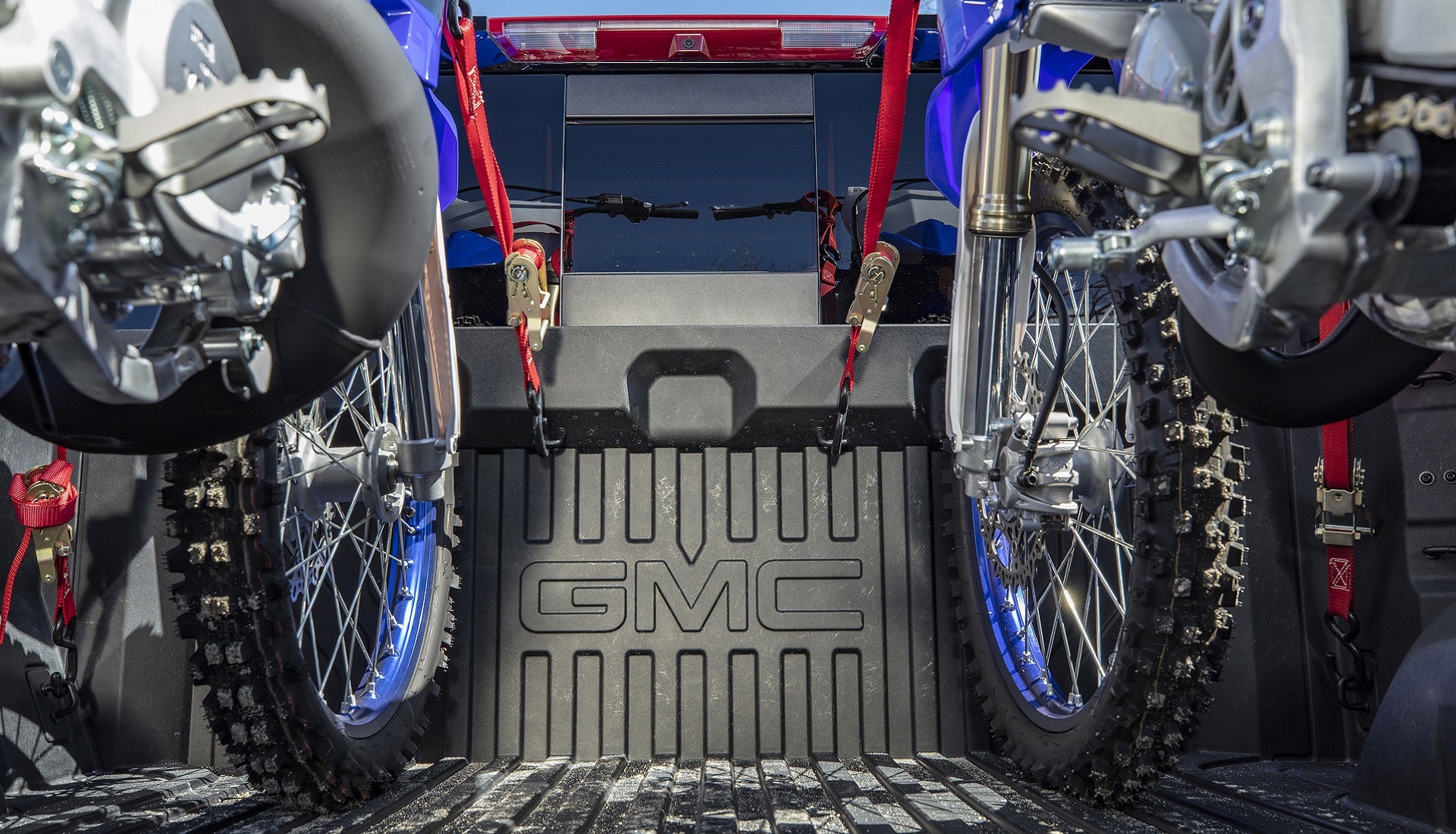

Once upon a time, carbon fiber was reserved for the fastest, most extreme, and most expensive supercars in the world. In fact, if you rewind back to the early ’80s, carbon fiber was used exclusively in two places: Formula 1 racing, and the aerospace industry. But today, all you have to do is check a box when ordering a fancy-schmancy 2019 GMC Sierra Denali and your cowboymobile will be delivered to you with a carbon fiber truck bed that’s 62 pounds lighter and many times stronger than its steel counterpart.
This seems a straightforward promise, right? After all, carbon fiber is extremely strong, so why not build the part of a pickup truck that takes the most abuse out of carbon fiber? Like most things in life, it’s unfortunately not that simple—there’s a reason it hasn’t been attempted for the mass market thus far. So GMC kindly invited me to visit Continental Structural Plastics (CSP) in Fort Wayne, Indiana, where I witnessed a stack of carbon fiber composite sheets turn into production-ready truck beds. More importantly, I came back with some key information you need to know if you’re considering one of these high-strength babies.
Is it Really Carbon Fiber?

Yes, every CarbonPro starts out in life as a sheet of 100 percent carbon fiber composite—the same kind of material that Lamborghini uses in its Huracan Performante and Aventador SVJ supercars. That being said, there are several elements in the truck bed assembly that are made out of glass fiber, aluminum, and steel, as the diagram above shows.
How Strong Is it?

The carbon fiber composite sheets you see above may not scream “I’m strong,” but according to GMC, the CarbonPro is the most corrosion, dent, and scratch-resistant pickup truck bed currently in production. Because carbon fiber can behave differently depending on its weave pattern and thickness, GMC claims to have conducted thousands of tests to understand and validate its performance. Some of these included compression, flex, impact, fatigue, galvanic corrosion, and chemical resistance tests in various environmental conditions.
What does that actually mean? It means that GMC dropped cinder blocks directly from a Bobcat onto the bed, left a generator running for hours on end (for heat testing), and even bent a fair share of metal baseball bats (they showed me the proof). There’s actually video of it.
Where Is CarbonPro Made?

Want to make sure your truck’s coolest accessory is made in ‘Murica? You’ll be happy to know that CarbonPro is manufactured at CSP’s facility in Fort Wayne, Indiana, just minutes away from General Motors’ Fort Wayne Assembly Plant where the GMC Sierra and Chevrolet Silverado half-ton pickup trucks are built. CSP also produces several lightweight composites for the Chevrolet Corvette and Ford F-150 Raptor.
Pros and Cons

It’s difficult to gauge the benefits or lack thereof of a brand-new product that’s coming into a market for the first time. According to GMC, its customers demanded segment-leading technologies, and the new MultiPro tailgate and CarbonPro bed are two of its biggest answers.
Pros: Added strength, higher durability, best-in-class cargo volume (1.81 cubic meters improved volume than its steel counterpart), 14 fixed tie-down hooks (more than any other short box), and better fuel economy due to lighter weight
Cons: Unproven performance, low production volume (meaning that most CarbonPro trucks will have to be special ordered), most-likely exorbitant price
How Much Does CarbonPro Cost?

Unfortunately, pricing and other crucial details about CarbonPro haven’t been released—but one thing is for sure—it won’t be cheap. If we had to make an educated guess, early adopters will have to shell out somewhere between $3,500 and $5,000 for the added performance and bragging rights of Carbon Pro.